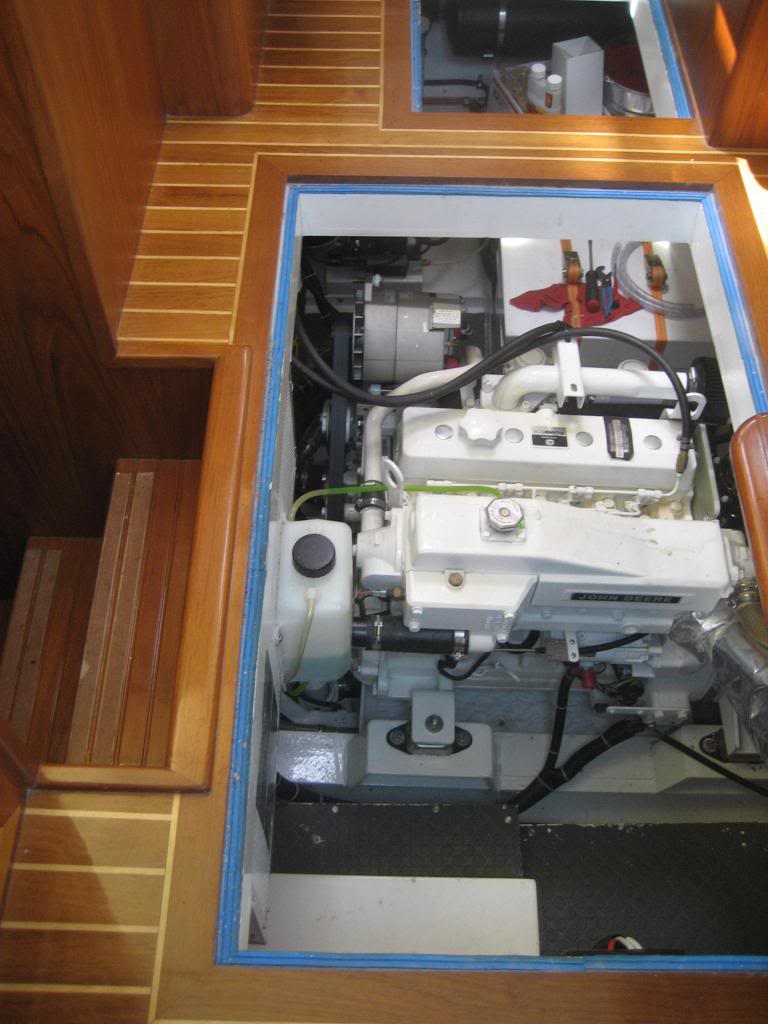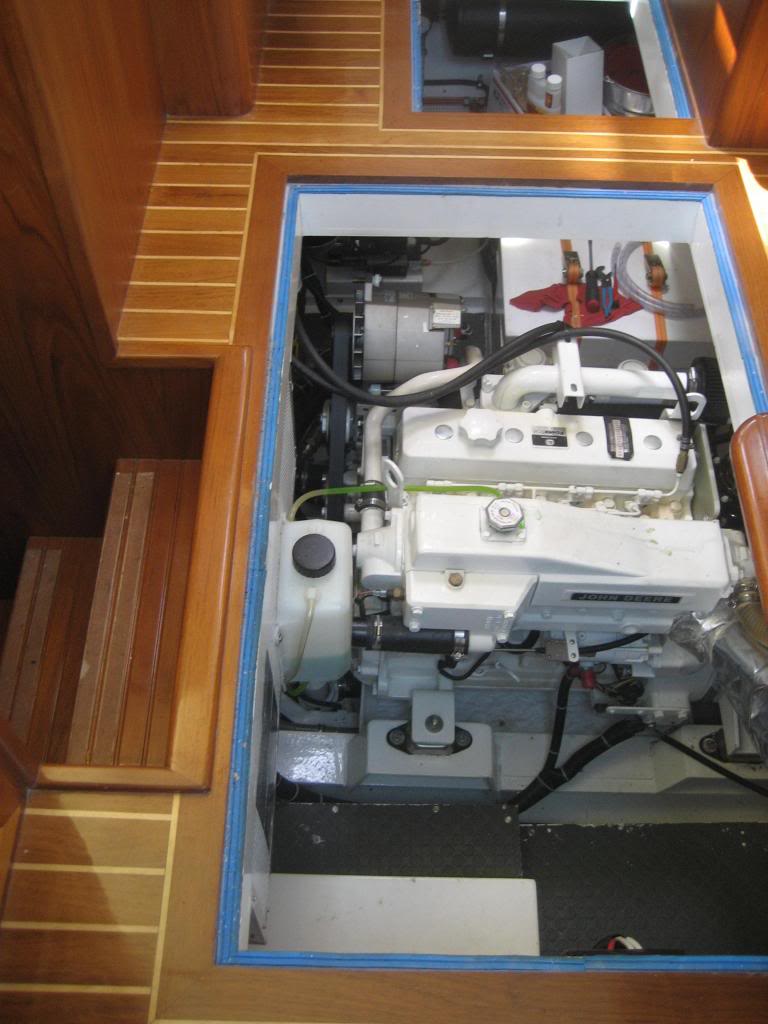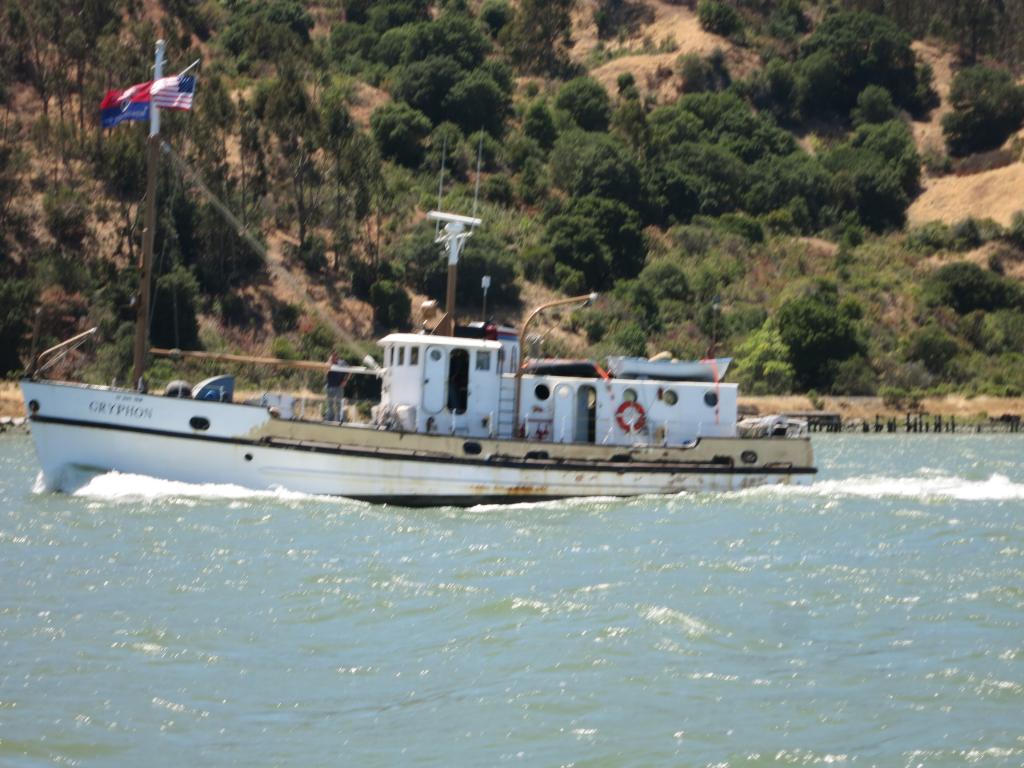dhmeissner
Guru
- Joined
- Sep 26, 2012
- Messages
- 1,569
- Location
- North America
- Vessel Name
- The Promise
- Vessel Make
- Roughwater 35
What do you think of replacing a FL120 with a John Deere? I'm thinking of this as something that might interest me in a year or two when I retire and can refit The Promise to a higher standard so we can cruise long term without worry. The displacement is 14,000lbs so a small JD might be the ticket.
Engine
PowerTech™ 4045TFM75
Displacement
4.5L
kW/hp
101 kW (135 hp)
Could be a good match? I will have to see what that would cost I guess, might have to log some trees to pay for it.
Engine
PowerTech™ 4045TFM75
Displacement
4.5L
kW/hp
101 kW (135 hp)
Could be a good match? I will have to see what that would cost I guess, might have to log some trees to pay for it.




